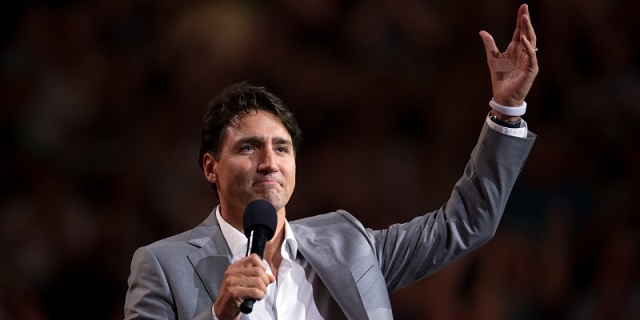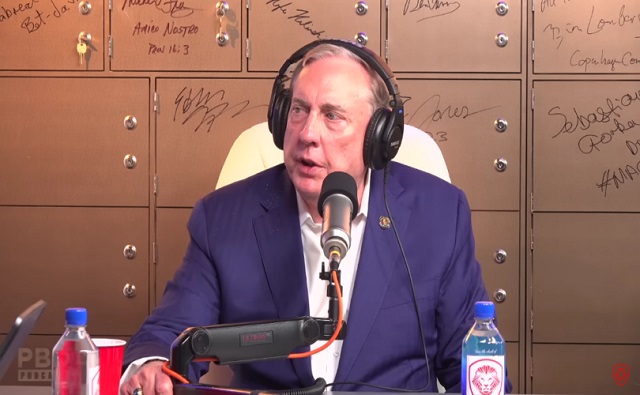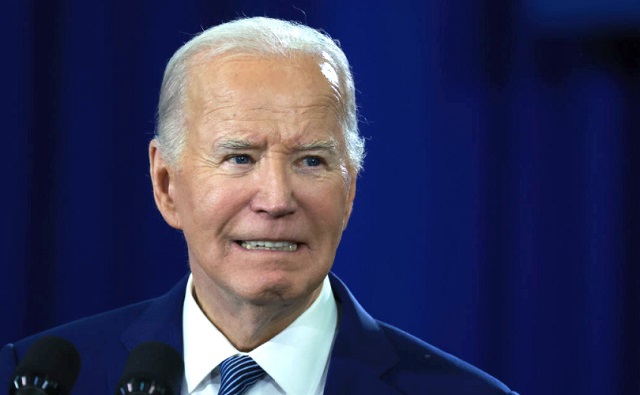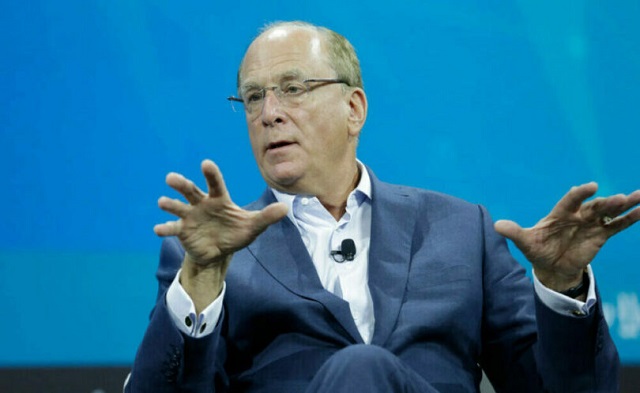Opinion
Success in politics depends on untruths in today’s political arena.

“Conservative Leader Andrew Scheer is doubling-down on his personal attacks on Justin Trudeau, straying from predictable partisan abuse to outright fiction—this from a man who promised to be a shiny new leader with a positive vision,” writes Susan Riley. The Hill Times
I mentioned this in passing after discussing the incorrect information given by Conservative Leader Andrew Scheer when he stated he was quoting from an economic report, and I was told that all politicians lie.
I can see why politics has become something less than desirable. Should we just accept that all politicians lie and vote for them? No.
There are too many politicians who are simply politicians. We used to get successful farmers, business owners, CEOs, with passion for their careers turning to politics out of a sense of duty and desire. Now we are voting for politicians who only know and understand politics.
The percentage of voters who actually vote has been decreasing and thinking all politicians lie could be part of it. Why waste their time voting when all politicians are the same, unbelievable and partisan.
A former Prime Minister’s communications director, argued that telling lies wins elections. If one thinks about how lies brand people, and the brand sticks after the lies are forgotten.
The statement about the Prime Minister taking 18 family days in 6 months sounds awful if you take it in the concept of normal work weeks of 5 days a week, 8 hours a day. A Prime Minister works 7 days a week and has to be available 24 hours a day. The average person has 55 days off every 6 months so a Prime Minister taking 18 days off seems impressive. The same could be argued about all the vacations the Prime Minister has supposedly taken. Some like the China trip, for example, were official trips on behalf of the government.
Let us look at the latest political variance from the truth.
The most recent example is that swing set the Trudeau installed at Harrington Lake. Lots of parents buy swing sets for their kids. Admittedly, a much smaller percentage of them pay $7,500 for them.
But the way Conservative leader Andrew Scheer raised the subject, you would think that Trudeau had taken the money straight out of the Mint to splurge on his brood’s private playground.
The reality check here would normally be to simply state the facts. Trudeau personally paid for the swing set, charging taxpayers $1,800 for its installation, as per National Capital Commission rules. Presumably when he leaves as prime minister, the swing set stays — along with the sauna (also paid for by Trudeau), and the refurbished deck and floating dock.
But the reality check in this case is that Scheer chose to use the $7,500 figure after the PM disclosed that he had paid that money himself.
The Opposition leader wanted people to condemn Trudeau for implied extravagance at the public expense. What he was really doing was trashing the PM for something he hadn’t done, using an assertion that was either meaningless or deliberately false.
In other words, post-truth trash. Michael Harris.
Andrew Scheer personifies politics at the highest level because he could be potentially, the next Prime Minister, not because he has the best ideas, plans and policies but because he may have the best Lies.
If all politicians lie, and some will argue that, should we accept it? In the world of fake news, political untruths, and voter distrust who do we go to for answers?
Business
UN plastics plans are unscientific and unrealistic

News release from the Coalition of Concerned Manufacturers and Businesses of Canada
“We must focus on practical solutions and upgrading our recycling infrastructure, not ridiculous restrictions that will harm our health care system, sanitary food supply, increase costs and endanger Canadians’ safety, among other downsides.”
This week Ottawa welcomes 4,000 delegates from the United Nations to discuss how they will oversee a reduction and even possible elimination of plastics from our lives. The key problem is no one has ever figured out how they will replace this essential component of our modern economy and society. The Coalition of Concerned Manufacturers and Businesses of Canada (CCMBC) has launched an information campaign to discuss the realities of plastic, how it contributes massively to our society and the foolishness of those who think plastics can be eliminated or greatly reduced without creating serious problems for key industries such as health care, sanitary food provision, many essential consumer products and safety/protective equipment, among others. CCMBC President Catherine Swift said “The key goal should be to keep plastics in the economy and out of the environment, not eliminate many valuable and irreplaceable plastic items. The plastics and petrochemical industries represent about 300,000 jobs and tens of billions contribution to GDP in Canada, and are on a growth trend.”
The UN campaign to ban plastics to date has been thwarted by reality and facts. UN efforts to eliminate plastics began in 2017, motivated by such terrible images as rivers with massive amounts of floating plastic and animals suffering from negative effects of plastic materials. Although these images were dramatic and disturbing, they do not represent the big picture of what is really happening and do not take into account the many ways plastics are hugely positive elements of modern society. Swift added “Furthermore, Canada is not one of the problem countries with respect to plastics waste. Developing countries are the main culprits and any solution must involve helping the leading plastics polluters find workable solutions and better recycling technology and practices.”
The main goal of plastic is to preserve and protect. Can you imagine health care without sanitary, flexible, irreplaceable and recyclable plastic products? How would we keep our food fresh, clean and healthy without plastic wraps and packaging? Plastic replaces many heavier and less durable materials in so many consumer products too numerous to count. Plastics help the environment by reducing food waste, replacing heavier materials in automobiles and other products that make them more energy-efficient. Many plastics are infinitely recyclable and innovations are taking place to improve them constantly. What is also less known is that most of the replacements for plastics are more expensive and actually worse for the environment.
Swift stated “Environment Minister Steven Guilbeault has been convinced by the superficial arguments that plastics are always bad despite the facts. He has pursued a campaign against all plastics as a result, without factoring in the reality of the immense value of plastic products and that nothing can replace their many attributes. Fortunately, the Canadian Federal court overturned his absurd ban on a number of plastic products on the basis that it was unscientific, impractical and impinged upon provincial jurisdiction.” Sadly, Guilbeault and his Liberal cohorts plan to appeal this legal decision despite its common-sense conclusions. Opinion polls of Canadians show that a strong majority would prefer this government abandon its plastics crusade at this point, but history shows these Liberals prefer pursuing their unrealistic and costly ideologies instead of policies that Canadians support.
The bottom line is that plastics are an essential part of our modern society and opposition has been based on erroneous premises and ill-informed environmentalist claims. Swift concluded “Canada’s record on plastics is one of the best in the world. This doesn’t mean the status quo is sufficient, but we must focus on practical solutions and upgrading our recycling infrastructure, not ridiculous restrictions that will harm our health care system, sanitary food supply, increase costs and endanger Canadians’ safety, among other downsides.” The current Liberal government approach is one that has no basis in fact or science and emphasizes virtue-signaling over tangible and measurable results. Swift noted “The UN’s original founding purpose after World War II was to prevent another world war. Given our fractious international climate, they should stick to their original goal instead of promoting social justice warrior causes that are unhelpful and expensive.”
The CCMBC was formed in 2016 with a mandate to advocate for proactive and innovative policies that are conducive to manufacturing and business retention and safeguarding job growth in Canada.
SOURCE Coalition of Concerned Manufacturers and Businesses of Canada
Fraser Institute
Canadians should decide what to do with their money—not politicians and bureaucrats

From the Fraser Institute
By Jake Fuss and Grady Munro
Since taking office in 2015, the Trudeau government has expanded the federal government’s role in making decisions for individuals and families, rather than letting Canadians decide on their own. And with its latest federal budget, which it tabled last week, it once again decided that politicians and bureaucrats should determine what people want and need, rather than the people themselves.
Indeed, during its tenure the Trudeau government has introduced a slew of new programs (e.g. national dental care, $10-a-day day care), which have contributed to an expected $227.4 billion increase in annual federal program spending (total spending minus debt interest costs) from 2014/15 to 2024/25. And according to the budget, due to new programs such as national pharmacare, annual program spending will increase by another $58.4 billion by 2028/29.
In many cases the impetus for these new programs has been to increase people’s access to certain goods and services (most of which were already provided privately). But the Trudeau government has consistently ignored the fact that there are always two ways for the government to help provide a good or service—tax and spend to directly provide it, or lower taxes and leave more money in people’s pockets so they can make their own decisions—and instead simply opted for more government.
Consequently, Canadians now pay higher taxes. In 2014/15 (the year before Prime Minister Trudeau was elected), total federal revenues represented 14.0 per cent of the economy (as measured by GDP) compared to 16.6 per cent in 2024/25—meaning taxes have grown faster than the economy.
More specifically, the total tax bill (including income taxes, sales taxes, property taxes and more) of the average Canadian family has increased from 44.7 per cent of its income in 2015 to 46.1 per cent in 2023. That means the average family must work five extra days to pay off the additional tax burden.
And families are feeling the burden. According to polling data, 74 per cent of Canadians believe the average family is overtaxed. And while the Trudeau government did introduce tax changes in 2016 for middle-income families, research shows that 86 per cent of these families ended up paying higher taxes as a result. Why? Because while the government reduced the second-lowest federal personal income tax rate from 22.0 to 20.5 per cent, it simultaneously eliminated several tax credits, which effectively raised taxes on families that previously claimed these credits.
Finally, many Canadians don’t believe their tax dollars are being put to good use. When polled, only 16 per cent of Canadians said they receive good or great value for their tax dollars while 44 per cent said they receive poor or very poor value.
Simply put, the Trudeau government has consistently empowered politicians and bureaucrats to decide how Canadians should use their hard-earned money, rather than allowing individuals and families to make those decisions. With its 2024 budget, once again the Trudeau government has demonstrated its belief that it knows best.
Authors:
-

 Censorship Industrial Complex2 days ago
Censorship Industrial Complex2 days agoDesperate Liberals move to stop MPs from calling Trudeau ‘corrupt’
-

 Health1 day ago
Health1 day agoTransgender activists are threatening the author of scathing UK report on child ‘sex changes’
-

 conflict1 day ago
conflict1 day agoCol. Douglas Macgregor torches Trump over support for bill funding wars in Ukraine and Israel
-

 Energy2 days ago
Energy2 days agoA Wealth-Creating Way of Reducing Global CO2 Emissions
-

 conflict2 days ago
conflict2 days agoCol. Douglas Macgregor: US is ‘facing disaster’ as it funds overseas wars while bankrupt
-

 International1 day ago
International1 day agoBiden admin expands Title IX to include ‘gender identity,’ sparking conservative backlash
-

 Frontier Centre for Public Policy23 hours ago
Frontier Centre for Public Policy23 hours agoThe end of Canada: The shift from democracy to totalitarian behavior in the ‘pandemic era’
-

 COVID-192 days ago
COVID-192 days agoInquiry shows Canadian gov’t agencies have spent $10 million on social media ads for COVID jabs








